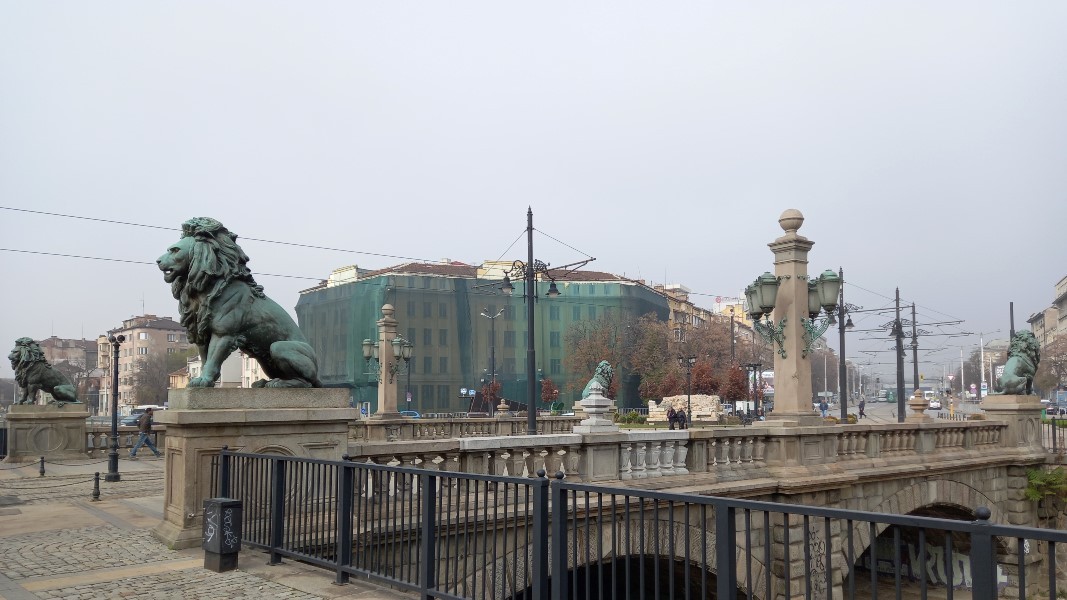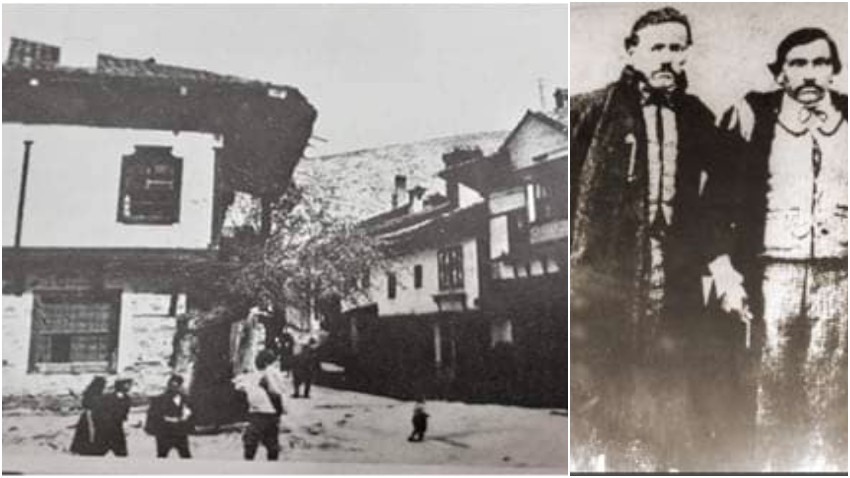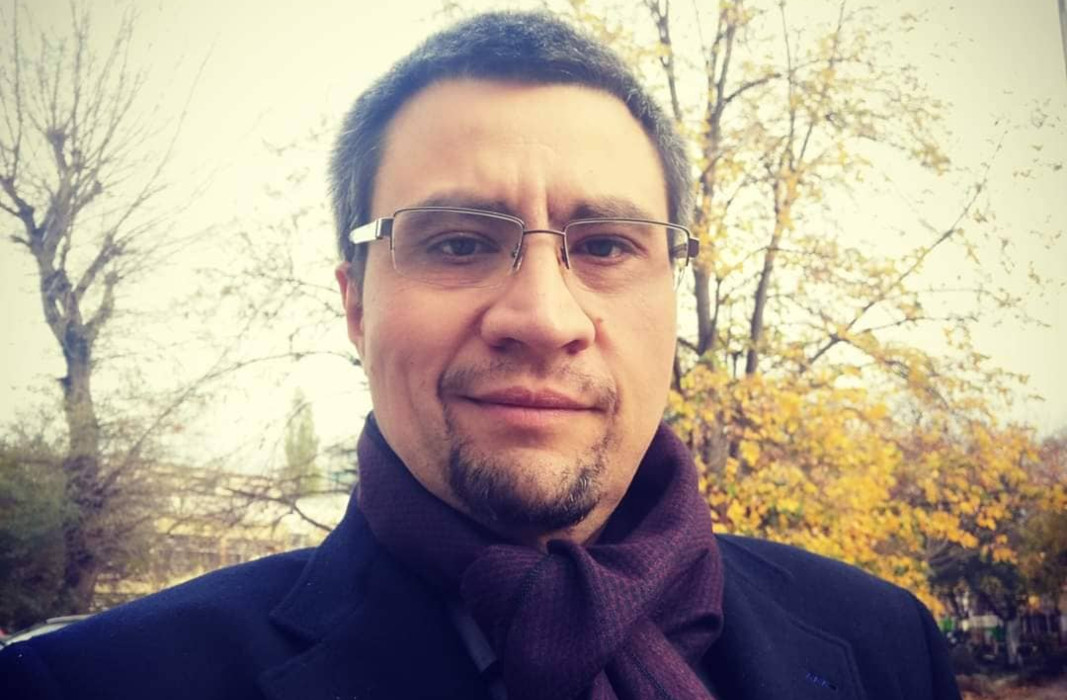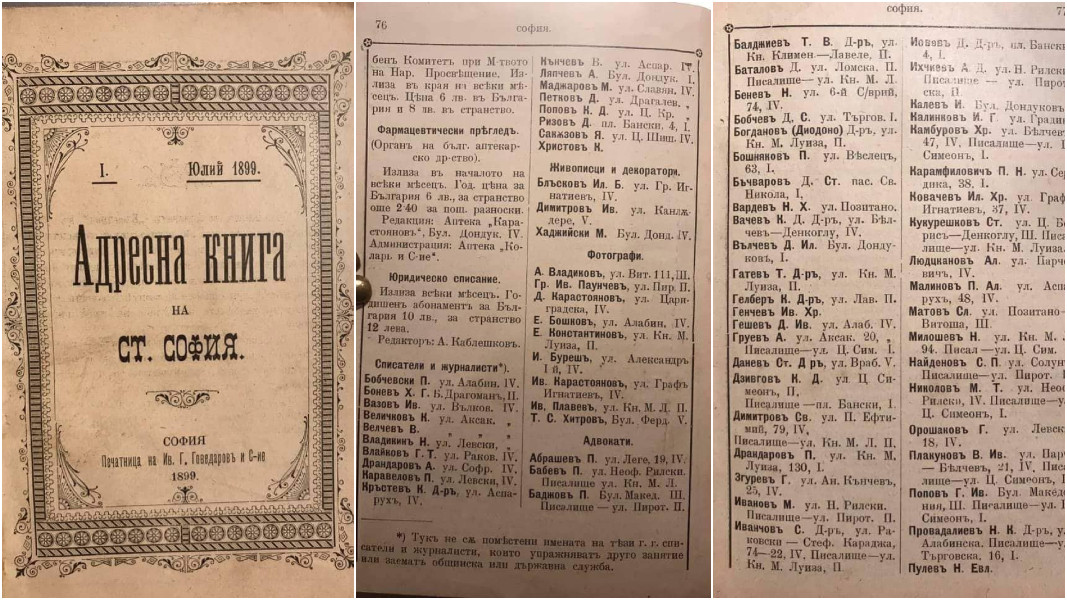145 years ago, four Sofia booksellers were hanged on the gallows on charges of distributing seditious literature. Immediately after the Liberation of Bulgaria from the Ottoman Rule in 1878, the founder of book publishing in Bulgaria, Hristo G. Danov, proposed to erect a memorial in their memory. In 1889-1891, the Lion Bridge was built on the site of the old Colourful Bridge. It is guarded by bronze lions, remarkable for their beauty and majesty, representing the four revolutionaries who died for the freedom of the country - Georgi Stoitsev, Stoyan Tabakov, Nikola Krushkin and Kiro Geoshev.

However, few people nowadays seem to know that there were actually five booksellers. The fifth "lion" of Sofia was Hadji Nikola Vardev.

"Nikola Vardev and Stoyan Tabakov were cousins. They were shepherds, then tar merchants, and after a trip to the Holy Sepulchre in Jerusalem, they became pilgrims. In 1864-1865, together they opened the first real bookstore in Sofia”, Boris Vardev, the direct heir of Nikola Vardev, tells the story of his family. “They sell church literature, books, printed publications. The two young people from the small village of Yakoruda (Southwestern Bulgaria) are setting out on the path of knowledge and light”.

Within a few years, the other three booksellers also opened their shops in the busiest places in the future capital. In 1870, after Vasil Levski founded the Sofia Revolutionary Committee, they became its members and began to distribute rebellious literature. Dangerous goods were stored in secret niches and transported in chests with a double bottom. In 1877, four years after Levski's death, the booksellers were captured and sentenced to death. Nikola Vardev was miraculously saved.

"There are several versions of the capture of these associates of the Apostle, but they were certainly being followed by the Turkish authorities for rebellious activity”, Boris Vardev explains. “Outside remains the head of the secret organization, who receives intelligence information about the movement of Russian troops and comes up with a plan to save at least one of the booksellers, so that the survivor could help the families of the others. How do they do it? They drew lots and the lucky one turned out to be Nikola Vardev. He used a loophole in Turkish legislation and claimed he wanted to convert to Islam and repent, but knowing that the Russo-Turkish war of liberation was at a very advanced stage and that soon Sofia and he would be liberated."
The hanging of the four Sofia booksellers was ostentatious: it was carried out in front of their bookstores on a market day as an admonition for others. On November 15, 1877, they passed to eternity only a few months before the Liberation, without seeing their homeland free. Nikola Vardev remained to continue their work, awaiting freedom in prison. He died in Sofia in 1915 at the age of 81, being a patron of culture and education until his death.

"He was a huge donor both before and after the Liberation. He started as a lawyer, became an attorney and later a district judge”, continues Boris Vardev. “The money he earned, he invested in donations in his native village of Yakoruda. He was one of the great benefactors of the community centre there, he donated utensils and church literature for the local church, he established a scholarship for students. The grateful residents of Yakoruda named a street after him, and the faces of Nikola Vardev and Stoyan Tabakov are depicted on the school along with other prominent Revival Period figures from the same place”.

There is no member of the Vardev family who has not engaged in revolutionary or charity work. Boris Vardev also follows in the footsteps of his eminent predecessors. For many years, he has been engaged in public activities, and almost 20 years ago, together with his friends, he founded the community center "Mladost 2003" in the town of Samokov.
"There are many similar families. These are the families that create modern Bulgaria”, he says. „Clans that started from small villages and reached the big cities, where they became proclaimers of the idea of freedom and development. Modern Bulgaria has stepped on their shoulders. This is the real history of Bulgaria! This is Bulgaria!".
English version Rositsa Petkova
Photos: Desislava Semkovska, personal library
The Patriarchal Cathedral of St Alexander Nevsky is celebrating its temple feast today. The cathedral, a symbol of the Bulgarian capital, was built "in gratitude to the Russian people for the liberation of Bulgaria from Ottoman rule in 1878". Who..
On November 22 and 23, the Bulgarian Orthodox Church will solemnly celebrate the 100th anniversary of the consecration of the Patriarchal Cathedral "St. Alexander Nevsky" . For a century the cathedral has been "a witness to all the hopes and..
The Feast of the Epiphany - the entry of the Theotokos into the Temple - is one of the oldest and most revered feasts in the Orthodox world. It was introduced in Constantinople around the 8th century during the time of Patriarch Tarasius. It was six..
Today, the Bulgarian Orthodox Church honors the holy great martyr Varvara - a maiden from a noble family, beheaded for her Christian faith at the..

+359 2 9336 661
